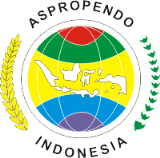IKLIM KEWIRAUSAHAAN DAN KOMPETENSI KEWIRAUSAHAAN: UPAYA UNTUK MENINGKATKAN KINERJA USAHA (STUDI PADA UMKM BATIK TULIS BAYAT, KLATEN)
Abstract
As Indonesia's original cultural heritage, Hand-Written Batik is one of the featured products for Micro, Small, and Medium Enterprises (MSMEs) in Central Java. However, the printed batik industry's presence impacted the decline in the market share of hand-written batik. The entrepreneurial climate and entrepreneurial competence are factors that are believed to increase the competitiveness of hand-written batik. This study aims to determine and explain the effect of entrepreneurial climate on business performance with entrepreneurial competence as an intervening variable. This research is explanatory research with a quantitative approach and involves as many as 138 MSMES owners at the center of Hand-Written Batik in Bayat District, Klaten Regency as respondents. Withdrawal of samples using the Slovin formula with a confidence level of 95 percent. The sampling technique uses proportional random sampling, and data collection is done by distributing questionnaires to respondents. Data analysis using descriptive analysis and path analysis were processed using SPSS software. The results show that the entrepreneurial climate has a positive and significant influence on entrepreneurial competence, the entrepreneurial climate has a positive and significant effect on business performance, entrepreneurial competence has a positive and significant effect on business performance, and entrepreneurial competence is proven to be able to mediate the relationship between entrepreneurial climate and business performance. This means that the better the entrepreneurial climate in an MSMEs industrial center will impact MSMEs' performance if, at the same time, MSMEs owners have good entrepreneurial competence.
Keywords: business performance, entrepreneurial climate, entrepreneurial competence, MSMEs
Full Text:
PDF (Bahasa Indonesia)References
Abaho, E., Aarakit, S., Ntayi, J., & Kisubi, M. (2016). Firm capabilities, entrepreneurial competency and performance of Ugandan Smes. Business Management Review, 19(2), 105–125. http://journals.udsm.ac.tz/index.php/bmr/article/view/625
Al Mamun, A., Fazal, S. A., & Muniady, R. (2019). Entrepreneurial knowledge, skills, competencies and performance. Asia Pacific Journal of Innovation and Entrepreneurship, 13(1), 29–48. https://doi.org/10.1108/apjie-11-2018-0067
Bayarçelik, E.B., & Özşahin, M. (2014). How entrepreneurial climate effects firm performance? Procedia - Social and Behavioral Sciences, 150, 823–833. https://doi.org/10.1016/j.sbspro.2014.09.091
Canada, A. P. F. (2018). Survey of entrepreneurs and MSMES in Indonesia: Building the capacity of MSMEs through human capital, 1–42. http://www.asiapacific.ca
Dimon, R. (2013). Enterprise performance management done right. Enterprise Performance Management Done Right. https://doi.org/10.1002/9781118636268
Fritsch, M. (2017). The theory of economic development – An inquiry into profits, capital, credit, interest, and the business cycle. Regional Studies, 51(4), 654–655. https://doi.org/10.1080/00343404.2017.1278975
Garavan, T., Watson, S., Carbery, R., & O’Brien, F. (2016). The antecedents of leadership development practices in SMEs: The influence of HRM strategy and practice. International Small Business Journal: Researching Entrepreneurship, 34(6), 870–890. https://doi.org/10.1177/0266242615594215
Garrido, E., Gomez, J., Maicas, J. P., & Orcos, R. (2014). The institution-based view of strategy: How to measure it. BRQ Business Research Quarterly, 17(2), 82–101. https://doi.org/10.1016/j.brq.2013.11.001
GEI Report. (2019). GEI_2019_Final-1. https://doi.org/10.13140/RG.2.2.17692.64641
Gerardo, B. T. F., & Alberto, S. V. R. (2014). Knowledge management, entrepreneurial competencies and organizational development in micro and small enterprises in rural regions in the State of Yucatan, Mexico. European Scientific Journal, 10(1), 1857–7881. http://eujournal.org/index.php/esj/article/viewFile/2554/2414
Ghosh, S., & Bhowmick, B. (2014). Uncertainties in entrepreneurship climate: A study on start-ups in India. Procedia - Social and Behavioral Sciences, 150, 46–55. https://doi.org/10.1016/j.sbspro.2014.09.006
Hazlina, A.N., Ramayah, T., Wilson, C., & Kummerow, L. (2010). Is entrepreneurial competency and business success relationship contingent upon business environment?: A study of Malaysian SMEs. International Journal of Entrepreneurial Behaviour & Research, 16(3), 182–203. https://doi.org/10.1108/13552551011042780
Khan, R. (2014). Entrepreneurship and institutional environment : Perspectives from the review of literature. European Journal of Business and Management, 6(1), 84–91.
Lawal, F. A., Iyiola, O. O., Adegbuyi, O. A., Ogunnaike, O. O., & Taiwo, A. A. (2018). Modelling the relationship between entrepreneurial climate and venture performance: The moderating role of entrepreneurial competencies. Academy of Entrepreneurship Journal, 24(1), 1–15.
OECD & ERIA. (2018). ASEAN SME policy index 2018. Retrieved from https://www.oecd-ilibrary.org/development/sme-policy-index-asean-2018_9789264305328-en
Peng, M. W. (2006). Towards an institution-based view of business strategy in Asia. Handbook of Research on Asian Business, (1996), 46–61. https://doi.org/10.4337/9781847203182.00010
Peng, M. W., Sun, S. L., Pinkham, B., & Chen, H. (2009). The institution-based view as a third leg for a strategy tripod. Academy of Management Perspectives, 23(3), 63–81. https://doi.org/10.5465/AMP.2009.43479264
Phelan, C., & Sharpley, R. (2012). Exploring entrepreneurial skills and competencies in farm tourism. Local Economy, 27(2), 103–118. https://doi.org/10.1177/0269094211429654
Prakasa, Y. (2018). Exploring the impact of social capital on entrepreneurial orientation and business performance (Study on members of MSMEs communities in Malang). Profit, 12(1), 20–31. https://doi.org/10.21776/ub.profit.2018.012.01.3
Ramadhan, O. A. (2019). Effect of entrepreneurial competencies on the survival of small and medium enterprises in Kenya. Dissertation, 1–144.
Siregar, A. P., Alia B. R., Agus, D. N., Fairuz, I., Prasada, I. M. Y., Riesma, A., Theresia, G. T., & Agustina, T. K. (2020). Upaya pengembangan industri batik di Indonesia. Dinamika Kerajinan dan Btik: Majalah Ilmiah, 37(1), 79-92.
Steelyana, E. (2012). Batik, a beautiful cultural heritage that preserve culture and supporteconomic development in Indonesia. Binus Business Review, 3(1), 116. https://doi.org/10.21512/bbr.v3i1.1288
Weaver, K. M., Liguori, E. W., & Vozikis, G. S. (2011). Entrepreneur business climate perceptions: Developing a measure and testing a model. The Journal of Applied Business and Economics, 12(1), 95–104. Retrieved from http://www.na-businesspress.com/JABE/weaver_abstract.html
Wirda, F., Herri, E., Rivai, H. A., & Herizon. (2019). Competitive advantage: Mediation effect between entrepreneurial competency and business performance creative industries in West Sumatera-Indonesia. Academy of Entrepreneurship Journal, 25(1), 1–12.
Zhu, Y., Wittmann, X., & Peng, M. W. (2012). Institution-based barriers to innovation in SMEs in China. Asia Pacific Journal of Management, 29(4), 1131–1142. https://doi.org/10.1007/s10490-011-9263-7
Refbacks
- There are currently no refbacks.













